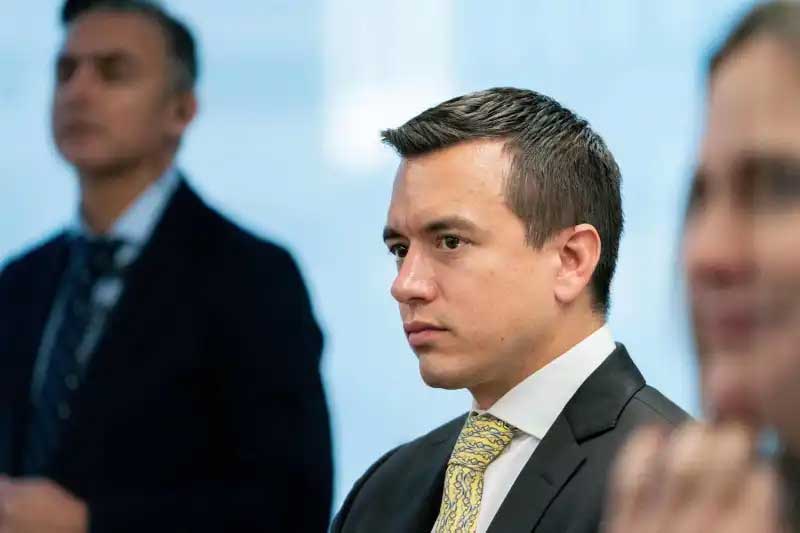Ecuador’s country risk rises due to Fed policy and bond sales, prompting IMF agreement pursuit.
Ecuador finds itself at a critical juncture in its economic trajectory as the country risk, a measure of international confidence in debt payments, escalates past 1,300 points. Over the span of a mere week, from March 11th to March 20th, this indicator surged by 89 points, signaling potential challenges ahead. The recent trajectory of Ecuador’s country risk contrasts with that of Argentina, which has seen a decline in recent days.
Analysts attribute Ecuador’s risk increase to a confluence of factors, notably the Federal Reserve’s monetary policy stance and the potential offloading of investor bonds. Despite the government’s efforts to bolster resources through economic legislation, concerns linger over the sustained rise in risk perception.
Alberto Acosta Burneo, editor of the esteemed publication Economía Semanal, contends that Ecuador’s fiscal fundamentals currently do not warrant investor apprehension. Recent economic laws have provided a lifeline for resource mobilization, and the imminent implementation of a 15% value-added tax (VAT) promises additional revenue streams. Furthermore, rising crude oil prices alleviate some worries traditionally associated with commodity-dependent economies like Ecuador’s.
However, the recent Federal Reserve meeting dashed hopes of an interest rate reduction, maintaining a stance of monetary restraint due to lingering inflation concerns. This outcome contradicted market expectations, fueling uncertainty and potentially contributing to the rise in country risk. Additionally, the allure of profit-taking by investors, capitalizing on bond appreciation, may further exacerbate the risk landscape.
Can it be turned around?
The looming question remains: can Ecuador reverse this risk trajectory and restore investor confidence? Analysts suggest that a pivotal factor in this equation could be the prospect of an agreement with the International Monetary Fund (IMF). Such an agreement holds the promise of much-needed financial infusion and debt restructuring, potentially alleviating immediate fiscal pressures.
At the heart of this discussion lies Ecuador’s evolving economic strategy under President Daniel Noboa. Contrary to his predecessor’s emphasis on austerity and fiscal discipline, Noboa’s administration leans towards a more expansive, social democratic vision. This vision entails sustained public spending and, consequently, a rise in public debt levels.
One potential avenue for debt management lies in extending repayment periods through IMF arrangements, providing a temporary reprieve for strained public finances. This approach, akin to a rollover mechanism, could ease immediate debt obligations and pave the way for a more sustainable fiscal trajectory.
Moreover, the prospect of accessing the IMF’s Resilience Fund, designed to address emergencies such as natural disasters, offers another avenue for bolstering Ecuador’s financial resilience. While initial estimates hinted at a substantial allocation, recent discussions suggest a more modest figure, emphasizing the importance of prudent fiscal management.
Looking ahead, Ecuador faces significant debt amortization needs in the coming years, with annual requirements reaching $3 billion between 2024 and 2025. Against this backdrop, an IMF agreement emerges as a critical lifeline, potentially stabilizing the country’s fiscal outlook and restoring investor confidence.
Despite recent fluctuations in country risk, analysts remain cautiously optimistic about Ecuador’s economic prospects. While short-term challenges persist, the government’s proactive measures and the potential for IMF assistance offer a glimmer of hope in navigating turbulent economic waters.
As Ecuador embarks on this journey of economic recovery and resilience-building, the stakes are high, and decisive policy actions will be paramount in shaping the country’s trajectory in the months and years to come.


0 Comments